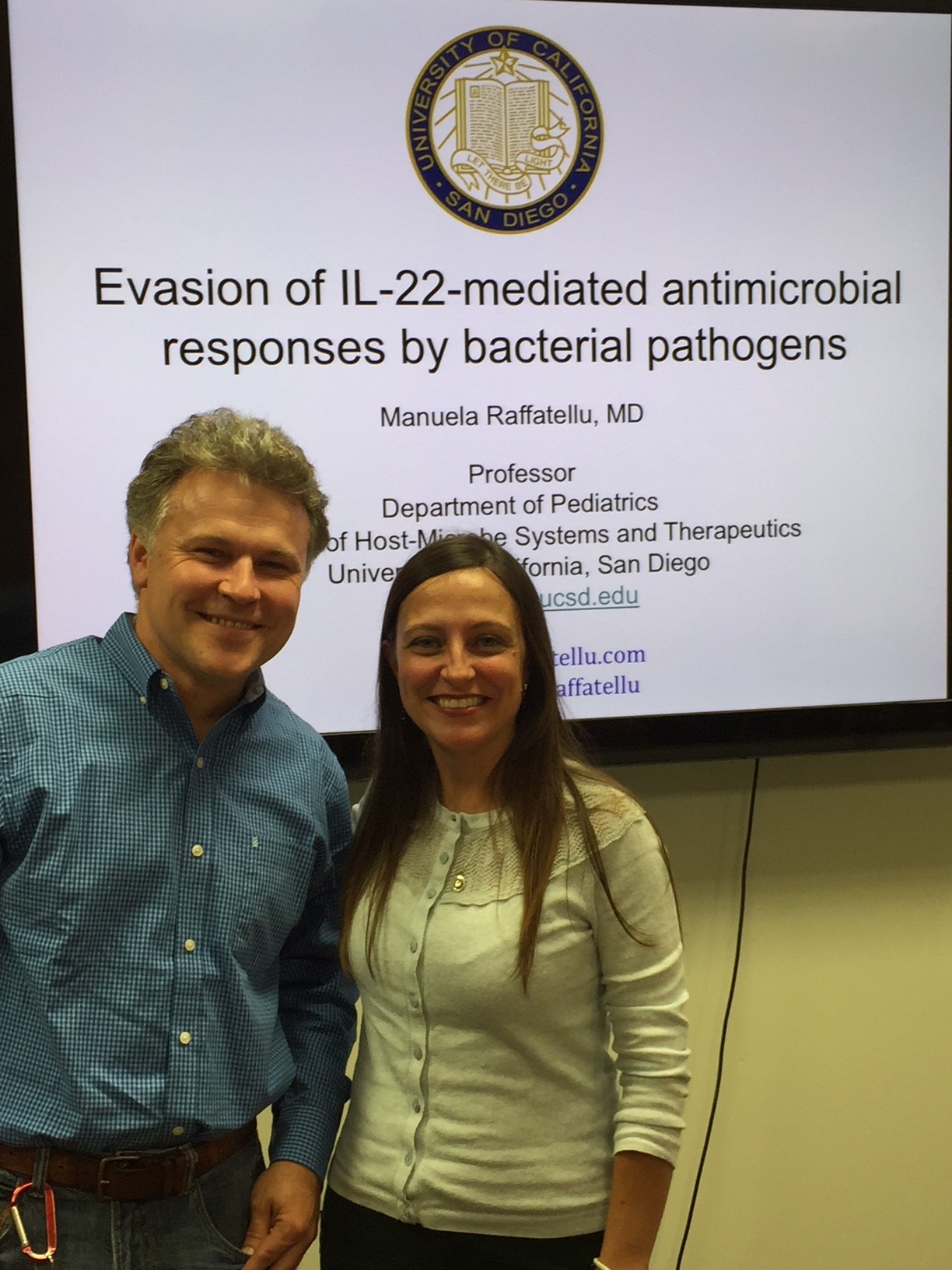News
Felix Yarovinsky Identifies Attractive Component for Anti-Parasite Vaccines
Thursday, December 6, 2018
A recent Nature Immunology publication from the laboratory of Felix Yarovinksy, M.D., associate professor of Microbiology and Immunology, identified the protein S100A11 as an important player in initiating an immune response in Toxoplasma gondii (T. gondii) infected cells. T. gondii is the intracellular parasite responsible for toxoplasmosis that has infected about one-third of the global population. This parasite is particularly dangerous during pregnancy, as it may lead to stillbirth, early prenatal death, or serious health problems for the baby after birth, such as eye or brain damage.
"S100A11 may be an attractive novel adjuvant due to its unique ability to recruit proinflammatory monocytes," said Yarovinsky, associate professor in the Department of Microbiology and Immunology. "Importantly, we discovered S100A11 as a host defense protein against T. gondii, but it may have much broader implications not limited to toxoplasmosis and can be applied for a variety of vaccines." Adjuvants enhance the body's ability to mount an immune response, and S100A11 may provide a way to boost the efficacy of future vaccines for T. gondii as well as other intracellular infections.
Using human blood cells, the lab discovered that the molecule CCL2 is upregulated in cultured cells following infection with T. gondii. CCL2 is a protein that attracts monocytes to an infection to remove infected cells from the body. This led to the discovery that S100A11 triggers CCL2 production in response to intracellular pathogens as CCL2 is released only from infected cells.
Congratulate Sasha Safronova when you see her
Monday, November 19, 2018
Congrats to Sasha Safronova for her paper in Nature Immunology on human recognition of Toxoplasma gondii!
New Concepts in Immunology Seminar Series
Friday, September 28, 2018
 The Yarovinsky Lab hosted Manuela Raffatellu (UCSD) as the first speaker for the New Concepts in Immunology 2018 seminar series.
The Yarovinsky Lab hosted Manuela Raffatellu (UCSD) as the first speaker for the New Concepts in Immunology 2018 seminar series.
Fascinating talk on IL-22 and Salmonella!
Felix Yarovinsky Leads Research on Positive and Negative Impact of Gut Bacteria
Tuesday, January 30, 2018
The human microbiome – the trillions of tiny bacteria that live in and on our bodies – is emerging as an increasingly important player in health and wellness. But, our co-existence with these organisms is complex, and scientists are learning that even minor changes in this relationship can lead to big problems with our health.
In a new study published in the journal Cell Host & Microbe, researchers from the University of Rochester Medical Center found that impairing a rare group of cells in the small intestine allows gut bacteria to invade the organ and cause major inflammation. The study was conducted in mice, but has implications for the treatment of inflammatory bowel disease (IBD), a group of disorders characterized by chronic inflammation in the digestive track.
The work can also be found in ScienceDaily, your source for the latest research news.